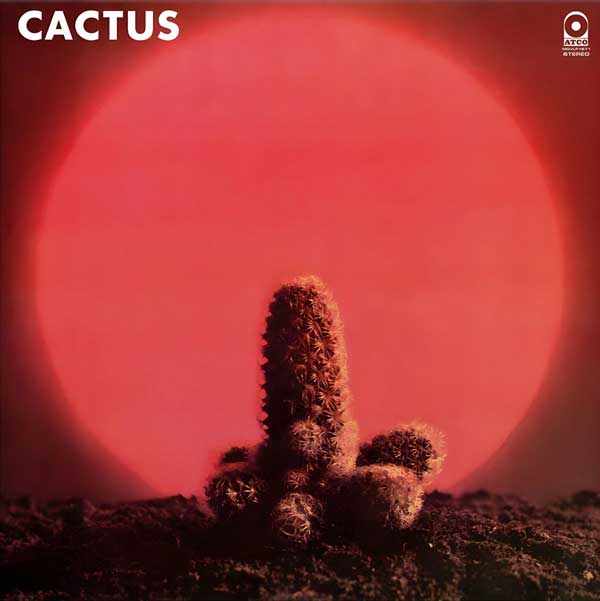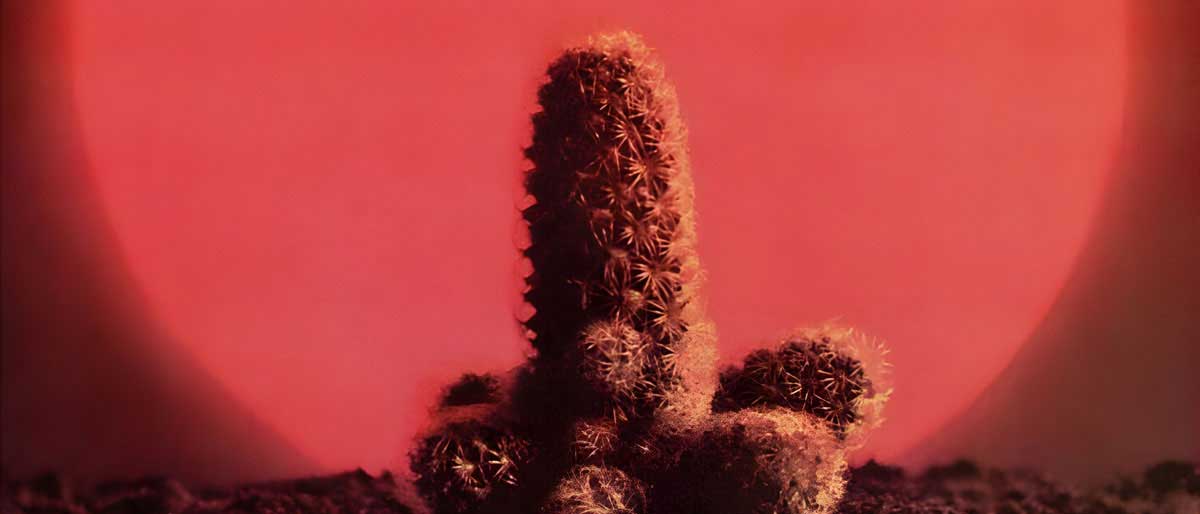You can trust Louder

Parchman Farm
My Lady From South Of Detroit
Bro. Bill
You Can't Judge A Book By The Cover
Let Me Swim
No Need to Worry
Oleo
Feel So Good
Bassist Tim Bogert and drummer Carmine Appice left Vanilla Fudge in 1969, and originally planned a supergroup with Jeff Beck and Rod Stewart. Plans were scuppered when Beck suffered a car crash and Rod joined the Faces. Instead, they got former Amboy Dukes singer Rusty Day and guitarist Jim McCarty from Mitch Ryder’s Detroit Wheels to form one of the era‘s most incendiary outfits
Signed to Atlantic, the same label as Vanilla Fudge, they released their self-titled debut in July 1970. Its heavy, blues-oriented style – amping up Mose Allison and Willie Dixon standards alongside thunderous originals – bridged the gap between Led Zeppelin’s ambitious noise and Grand Funk Railroad’s primal bombast. McCarty’s blistering guitar and Day’s raw-tonsil holler jousting with the avalanchal rhythm section created a blueprint for blues-rock and metal, but it sold modestly.
“[Instrumentally] we were a power trio,” said Bogert. “Cream had only just stopped when we began, and Zeppelin were still finding their feet. We were the missing link between them. We had a lot in common with the British scene."

Every week, Album of the Week Club listens to and discusses the album in question, votes on how good it is, and publishes our findings, with the aim of giving people reliable reviews and the wider rock community the chance to contribute.
Other albums released in July 1970
- Fun House - The Stooges
- Osmium - Parliament
- Cosmo's Factory - Creedence Clearwater Revival-
- Time And A Word - Yes
- John Barleycorn Must Die - Traffic
- Number 5 - Steve Miller Band
- Devotion - John McLaughlin
- Free Your Mind... and Your Ass Will Follow - Funkadelic
- Full House - Fairport Convention
- Humble Pie - Humble Pie
- James Gang Rides Again - James Gang
- The Last Puff - Spooky Tooth
- On The Waters - Bread
What they said...
"The blistering closing duo of Oleo and Feel So Good (complete with bass and drum solo slots) easily certifies the Cactus LP as one of the best hard rock albums of the then brand-new decade, bar none. Too bad the illustrious members of Cactus would quickly lose interest in this band project and deliver increasingly mediocre efforts in the years that followed." (AllMusic)
"In the end, Cactus’s debut was a test of team chemistry done well. It was also a test of whether they could successfully pioneer the blues genre to mix with rock, which they also succeeded in. Finally, they did a great job in gripping the listener’s mind with some quite memorable music and lyrics. It is safe to say that Cactus was mostly a success in the blues world, and that’s all that mattered to them at the time." (SputnikMusic)
"Nowadays we’ve become desensitised to heavy music, so it’s hard to emphasise just how ground-breaking (quite literally) Cactus’ eponymous debut was. I’m sure that opening cut Parchman Farm had many a rocker spilling their cans of Party Seven when Carmine Appice’s thunderous drum roll appeared alongside Jim McCarty’s dexterous fretwork. It’s a high-octane, no-holds-barred slab of rhythm and blues which pushes all the needles into the red as Rusty Day supplements his raspy vocals with some swirling harmonica." (The Midlands Rocks)
What you said...
Peter Thomas Webb: The debut album by Cactus is a classic example of a minor album – by which I mean an album that helped define the sound and style of a certain era without distinguishing itself above the pack of other similar releases. In 1970, Cactus were the epitome of hard-driving blues-oriented rock, pounding their way through Mose Allison's Parchman Farm like a piledriver installing fenceposts.
Tim Bogert's fuzzy bass vamp on Oleo and Carmine Appice's drum solo on Feel So Good recall the heavy chops both musicians brought to other outfits, most notably Vanilla Fudge and Beck, Bogert & Appice. But these underwritten songs late in the album are also signs of a band desperate to stand out against other blues-rock behemoths of the time – Free, the James Gang, Mountain, Ten Years After, and a dozen others.
Something these other bands had that Cactus lacks is a truly outstanding instrumentalist – a Paul Kossoff, a Joe Walsh, or a Leslie West. Former Mitch Ryder sideman Jim McCarty is a capable guitarist in the vein of these other players. Still, his riffs and solos leave an undefined path as the band hacks its way through the standard fast/ slow/ epic musical thicket.
Former Amboy Dukes vocalist Rusty Day has the requisite whiskey-drenched pipes for the material, but, again, nothing unique emerges from his pedestrian romp through good but undistinguished songs. Had Cactus (the album) presented one or two standout tracks – a Funk 49 or Mississippi Queen let's say – its reputation would be greater than it is. In the end, there is nothing specifically wrong with the Cactus debut; it's just that so many other albums, circa 1970, did the same things better. My rating: 7/10.
Steve Pereira: Cactus were formed by the rhythm section of the late Sixties heavy psychedelic band Vanilla Fudge. They had planned to work with Jeff Beck, but his injury after a car crash, meant he wasn't available. The rhythm section would later work with Beck in Beck, Bogert & Appice, a short-lived combination which released one indifferent album, though a second album, Working Version, unreleased due to the band splitting up after a backstage argument during their final gig at The Rainbow in London, showed what they were capable of (there's a bootleg of it worth seeking out - and it's on YouTube).
Vanilla Fudge were an exciting, energetic, loud and heavy band who were an influence on a number of emerging rock bands such as Deep Purple and Led Zeppelin (who supported the Fudge on their first American tour). Bonham was influenced by Appice, bought the same drum kit as him, and copied his drum style.
So it is understandable how publicists would use that connection to say that a band formed by half of Vanilla Fudge were the American Led Zeppelin, though the Zeppelin comparison was not helpful to the band as while the two bands were working on "progressive blues" style music, they were otherwise not similar. A number of bands at the times were working in the same area. It kinda set them up for failure, as no progressive blues or hard rock band is going to be equal to, let alone be better than, Zeppelin. Zeppelin were unique.
If Cactus were instead compared to contemporary electric blues artists, such as Taj Mahal, Electric Flag, Taste, Allman Brothers, and Johnny Winter, they would have come across more favourably as Cactus are clearly heavier and meatier. But, of course, the buzz then was Led Zeppelin, and so the comparison was made. And the comparison effectively muffled their chances of broad acceptance and success, especially in the UK.
The album is OK, but the production is thin, and the song-writing weak. There is a Southern Rock feel about much of the album, with an attractive tension in some of the slower or more acoustic numbers with the restrained energy of the rhythm section who would clearly rather rock out than play soft and subtle.
With better promotion, better songs, and better production Cactus could have gone on to greater strength instead of fading out after a serious of somewhat mediocre albums. This debut was their best effort, and decent though it is, it couldn't survive the Zeppelin comparison. Judge it for what it is, though, and you'll find it's a good rocking album.
John Davidson: Cactus opens brightly enough with a hard rocking makeover of an old blues number (Parchman Farm) but rather than sounding like Led Zep they sound like a looser, more shambolic early Deep Purple.
After a high-energy opener they slam the breaks on for the languid ballad, My Lady From Old Detroit, which would have benefited from a bluesy crooner like Rod Stewart to compliment the music rather than the rawer tones of Rusty Day. Bro Bill is pretty run-of-the-mill blues rock, as is Can't Judge a Book. Let Me Swim brings some Status Quo-style boogie to the album but isn't as much fun as it should be.
No Need to Worry is the only song that sounds even vaguely like Zep but still fails to get either the pulse or the emotions racing. Oleo is pretty poor while closer Feel So Good promises to end on a high note before it devolves into a drum solo. Overall pretty uninspiring stuff. 4/10.
Mike Canoe: I think Cactus was promoted as the "American Led Zeppelin" because that's what record companies and the music press do. Got something that works? Hype something else as an extension of that. Even though they were still in their blues-aping infancy, Zeppelin was already pretty much peerless thanks to Robert Plant's high-pitched wail and Jimmy Page's mastery of the studio as an instrument, never mind the band's magical chemistry.
There are two songs that make me think that they sound like Zeppelin: The first song is No Need to Worry, but not in a good way. I was really surprised that it wasn't one of the two covers because it sounds exactly like an amplified Willie Dixon song - specifically, Zeppelin playing an amplified Willie Dixon song. The other is album closer Feel So Good, and it sounds like Zeppelin in a good way. Cactus finally finds a groove - and the Carmine Appice drum solo doesn't hurt either. Still, at the same time, it's hard not to think that Zep did the same thing better on Led Zeppelin II, released the previous year.
Carmine Appice is one of those musicians I've always had a soft spot for, primarily because of his work with hair metal and hard rock bands like King Kobra and Blue Murder - and, let's face it, because he looked cool. Cactus reminds me more of 1973's Beck, Bogart, Appice, a pick from the club's first year. Cactus competently played a style of heavy blues but so many bands, especially Led Zeppelin, had moved beyond that already.
Greg Schwepe: While the debut of Cactus may not go down as one of the all-time huge albums in the annals of 1970’s hard rock, they certainly let everyone know right out of the gate that the 70s decade would be big, brash, and adventurous. “Hey, it’s 1970! Grab your earplugs because this decade is going to be LOUD!” This supergroup was filled with talented musicians.
Listeners are instantly bombarded by the full throttle aural assault of Parchman Farm. And I mean “assault” in a good way. And while all the instrumentation and vocals are top-notch, the star of this track (and maybe the rest of the album?) may well be the producer. All the tracks are separated, with nothing seemingly stacked on one another. Not sure if this was recorded live with all the band in the studio or what, but the results leave you with an array of sound, you can hear everything.
And after the intensity of the opener, it slows down a little with the acoustic-tinged My Lady From South Of Detroit. And the album gets better from track to track. Bro. Bill brings about some good harmonica boogie. Let Me Swim delivers some hard rock boogie, and well, you get the overall vibe of this album.
I’m trying not to gush yet again about some album that I wish I’d heard years ago, but once again, here’s an “old, but new to me” album that seems to stick with you. I’ll use an analogy I had used in a previous review. If this album were being blasted through speakers (big ol' Radio Shack ones sitting on the roof outside the second-story bedroom; to paint the picture here!) at an outdoor party in someone’s backyard in 1970, people would stop chatting with their buddy long enough to turn and look at those speakers and say “Dang… what album is that playing?!” For me, it has that kind of effect.
8 out of 10 for me on this one. And maybe gets a bonus point for Carmine Appice’s moustache.
Richard Cardenas: A good album most of the time and a great album with the right atmosphere. 7/10.
Ben L. Connor: Like a lot of proto-metal bands, 9/10 for the musicianship and ‘vibes’, 5/10 for the songwriting.
Hai Kixmiller: Unapologetic, eardrum-bludgeoning, raw blues-based rock'n'roll! Cactus' debut album hits like an avalanche of noise crashing down from the mountain of "On a scale of 1 to 10, it goes to 11". A definite must-have for fans of Vanilla Fudge, The Amboy Dukes, Mitch Ryder's Detroit Wheels, Blue Cheer, MC5, Free, Trapeze and other early blues-based hard rock bands.
Philip Qvist: A decent enough blues rock album, without really setting the world alight. The Led Zeppelin comparison was silly, and hardly helped their cause - not that there is anything wrong with Cactus. A good, but hardly memorable record.
Evan Sanders: This is a fun album, and Carmine Appice's drumming does stand out. I like the two cover songs, Parchment Farm and You Can't Judge a Book By The Cover, and My Lady From South Of Detroit is a rocking second track. It's too bad that the rest of the album doesn't match that intensity. There is no Led Zeppelin comparison here, as Cactus could probably have been an opener for Led Zeppelin, but would not have filled the same stadiums. 6/10.
Final score: 6.64 (42 votes cast, total score 279)
Join the Album Of The Week Club on Facebook to join in. The history of rock, one album at a time.
Classic Rock is the online home of the world's best rock'n'roll magazine. We bring you breaking news, exclusive interviews and behind-the-scenes features, as well as unrivalled access to the biggest names in rock music; from Led Zeppelin to Deep Purple, Guns N’ Roses to the Rolling Stones, AC/DC to the Sex Pistols, and everything in between. Our expert writers bring you the very best on established and emerging bands plus everything you need to know about the mightiest new music releases.




